第30章 Chapter 7(4)
The poem also impresses us by a Gothic richness of detail,the picturesque counterpart of its intricacy of thought,and,perhaps for this very reason,never so fully displayed in any subsequent work.Mr.Browning's genuinely modest attitude towards it could not preclude the consciousness of the many imaginative beauties which its unpopular character had served to conceal;and he was glad to find,some years ago,that 'Sordello'was represented in a collection of deive passages which a friend of his was proposing to make.
'There is a great deal of that in it,'he said,'and it has always been overlooked.'
It was unfortunate that new difficulties of style should have added themselves on this occasion to those of subject and treatment;and the reason of it is not generally known.Mr.John Sterling had made some comments on the wording of 'Paracelsus';and Miss Caroline Fox,then quite a young woman,repeated them,with additions,to Miss Haworth,who,in her turn,communicated them to Mr.Browning,but without making quite clear to him the source from which they sprang.
He took the criticism much more seriously than it deserved,and condensed the language of this his next important publication into what was nearly its present form.
In leaving 'Sordello'we emerge from the self-conscious stage of Mr.Browning's imagination,and his work ceases to be autobiographic in the sense in which,perhaps erroneously,we have hitherto felt it to be.
'Festus'and 'Salinguerra'have already given promise of the world of 'Men and Women'into which he will now conduct us.
They will be inspired by every variety of conscious motive,but never again by the old (real or imagined)self-centred,self-directing Will.We have,indeed,already lost the sense of disparity between the man and the poet;for the Browning of 'Sordello'
was growing older,while the defects of the poem were in many respects those of youth.In 'Pippa Passes',published one year later,the poet and the man show themselves full-grown.Each has entered on the inheritance of the other.
Neither the imagination nor the passion of what Mr.Gosse so fitly calls this 'lyrical masque'gives much scope for tenderness;but the quality of humour is displayed in it for the first time;as also a strongly marked philosophy of life --or more properly,of association --from which its idea and development are derived.
In spite,however,of these evidences of general maturity,Mr.Browning was still sometimes boyish in personal intercourse,if we may judge from a letter to Miss Flower written at about the same time.
Monday night,March 9(?1841).
My dear Miss Flower,--I have this moment received your very kind note --of course,I understand your objections.How else?But they are somewhat lightened already (confess --nay 'confess'is vile --you will be rejoiced to holla from the house-top)--will go on,or rather go off,lightening,and will be --oh,where WILL they be half a dozen years hence?
Meantime praise what you can praise,do me all the good you can,you and Mr.Fox (as if you will not!)for I have a head full of projects --mean to song-write,play-write forthwith,--and,believe me,dear Miss Flower,Yours ever faithfully,Robert Browning.
By the way,you speak of 'Pippa'--could we not make some arrangement about it?The lyrics WANT your music --five or six in all --how say you?
When these three plays are out I hope to build a huge Ode --but 'all goeth by God's Will.'
The loyal Alfred Domett now appears on the scene with a satirical poem,inspired by an impertinent criticism on his friend.
I give its first two verses:
On a Certain Critique on 'Pippa Passes'.
(Query --Passes what?--the critic's comprehension.)Ho!everyone that by the nose is led,Automatons of which the world is full,Ye myriad bodies,each without a head,That dangle from a critic's brainless skull,Come,hearken to a deep discovery made,A mighty truth now wondrously displayed.
A black squat beetle,vigorous for his size,Pushing tail-first by every road that's wrong The dung-ball of his dirty thoughts along His tiny sphere of grovelling sympathies --Has knocked himself full-butt,with blundering trouble,Against a mountain he can neither double Nor ever hope to scale.So like a free,Pert,self-conceited scarabaeus,he Takes it into his horny head to swear There's no such thing as any mountain there.
The writer lived to do better things from a literary point of view;but these lines have a fine ring of youthful indignation which must have made them a welcome tribute to friendship.
There seems to have been little respectful criticism of 'Pippa Passes';it is less surprising that there should have been very little of 'Sordello'.
Mr.Browning,it is true,retained a limited number of earnest appreciators,foremost of whom was the writer of an admirable notice of these two works,quoted from an 'Eclectic Review'of 1847,in Dr.Furnivall's 'Bibliography'.
I am also told that the series of poems which was next to appear was enthusiastically greeted by some poets and painters of the pre-Raphaelite school;but he was now entering on a period of general neglect,which covered nearly twenty years of his life,and much that has since become most deservedly popular in his work.
'Pippa Passes'had appeared as the first instalment of 'Bells and Pomegranates',the history of which I give in Mr.Gosse's words.